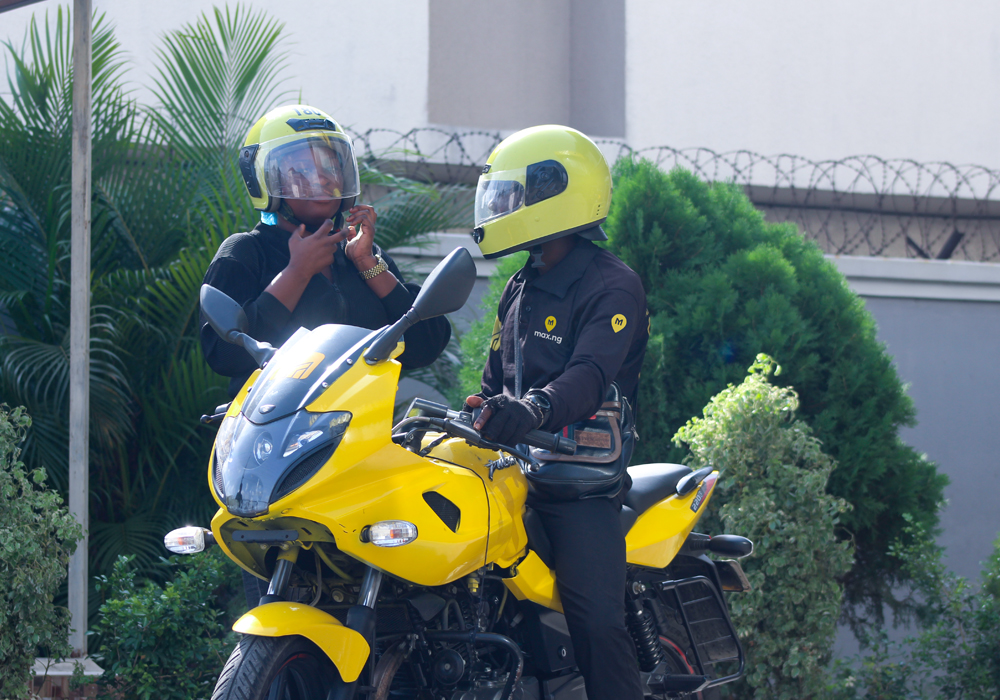Nigerian mobility-tech startup MAX bags $31 million in Series B round, set to expand across Africa, build EV infrastructure
Nigerian mobility tech startup Metro Africa Xpress Inc. (MAX) is planning to enter more markets across Africa as it races towards formalizing the continent’s transportation sector after securing $31 million in Series B funding.
The startup told TechCrunch that it will use the funding to enter Ghana and Egypt by the end of the first quarter of 2022, and other additional markets in Francophone, East and Southern Africa by the close of the same year. The funds will also be used to extend vehicle financing credit to over 100,000 drivers in the next two years.
MAX started out in 2015 as a delivery startup using motorcycles to fulfil customer orders before venturing into ride-hailing, and later into vehicle subscription and financing services – solutions it came up with based on the data from its first services.
The startup introduced vehicle financing in 2018, and in just over two years, CFO Guy-Bertrand Njoya told TechCrunch, the churn rate by drivers affiliated to them has crashed to “close to zero.”
“We spent time understanding drivers’ operations and it became apparent to us that most of them don’t own the vehicles they use,” said Njoya.
“It became clear that the fundamental issue that drivers face is consistent access to vehicles. And that is when we realized that if we are to be successful at solving the challenge of mobility across the continent, we have to first address the issue of vehicle access.”

MAX currently designs and assembles its own line of electric motorcycles. Photo Credits: MAX.
MAX’s commercial bank partners now extend vehicle purchase loans to drivers, using data provided by the mobility company in credit risk assessment.
As part of its catalogue of services, MAX plans to build electric vehicle infrastructure in its new markets, with the intention of introducing EVs to its emerging clientele.
“It is another milestone in our journey to make mobility safe, affordable, accessible, and sustainable by deploying high-performance technologies and operators. The investment will enable us to transform the lives of hundreds of thousands of drivers across the continent, accelerate international expansion, and continue our pioneering initiatives in the mobility space,” said MAX co-founder and CEO Adetayo Bamiduro. Chinedu Azodoh is the startup’s other co-founder.
Providing solutions to challenges around mobility has been at the centre of MAX’s operations such that the next puzzle it wanted to solve is that of growing driver earnings by reducing their operating costs.
The founders quickly realized that introducing electric vehicles would be the natural next step, and in 2019 MAX kickstarted their electric mobility journey. The company currently provides two, three and four-wheeler EVs to drivers through various leasing and financing options.
“It’s an additional option that we wanted to provide to the drivers because what they care most about is making a decent living through increased income. For us, electric mobility is going to be a significant driver of that objective because EVs are today more cost-effective than their gas equivalents,” said Njoya.
MAX currently designs and assembles its own line of electric motorcycles. Njoya said they work with partners across the ecosystem, including Yamaha, a leading motorcycle manufacturer, to deliver their EVs.
“We work with Yamaha in the area of access to vehicles for the drivers, and in the access to finance. As a testament of the success of our work and partnership, Yamaha today has set up a dedicated driver vehicle financing entity for Africa against the backdrop of the work that we’ve been doing with them over the past couple of years,” said Njoya.
The latest funding round that was led by global private equity platform, Lightrock, which is making its first investment in the African mobility space. The UAE-based international venture capital firm, Global Ventures, also took part in the round, as did existing investors Novastar Ventures, and Proparco, the French development finance institution, through their Digital Africa initiative.
Njoya said the startup is working towards becoming the go-to vehicle subscription and financial services platform for millions of transport operators across the continent. They recently partnered with Estonian ride-hailing company Bolt in a lease-to-own arrangement that is set to enable 10,000 drivers under the platform in Nigeria acquire energy-efficient vehicles.
from TechCrunch https://ift.tt/3EdKhoj
Comments
Post a Comment